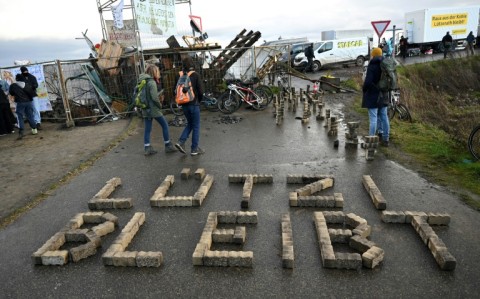
BERLIN - Protesters gathered in the west German village of Luetzerath on Sunday to challenge the extension of an open-air coal mine they say runs counter to the country's climate commitments.
"Around 2,000" people rallied in Luetzerath, which has become a symbol of resistance to fossil fuels, police in Aachen said.
Protesters participated in a walk around the village, which is slated for destruction to allow for the extension of a neighbouring open-air coal mine.
Activists have camped out in the abandoned settlement and plan to resist efforts by police to clear them out, with the operation set to start in the next week.
Energy giant RWE has permission for the expansion under a compromise agreement signed with the federal government, led by Social Democrat Chancellor Olaf Scholz.
Under the terms of the deal, five nearby villages will be spared, but Luetzerath is set to be demolished to make way for excavation works.
RWE also agreed to stop producing electricity with coal in western Germany by 2030, eight years earlier than previously planned.
Police forces from across Germany have offered reinforcements for the task of clearing out the activists, according to Der Spiegel magazine.
Regional authorities want to deploy "between 10 to 15" units of around a hundred police officers at the site from this week, according to an internal memo seen by the magazine.
Another large-scale protest is planned for January 14 in the village.
The struggle over Luetzerath comes as Germany has restarted mothballed coal power plants amid an energy crisis triggered by the Russian invasion of Ukraine.
Despite resorting to coal to ease the pressure on gas-powered plants, Germany says it is not wavering from its aim of exiting coal power in 2030.
Climate activists however contend that the government is not doing enough to hit the Paris climate goal of holding global warming to 1.5 degrees Celsius.
In 2022, Germany used more renewable energy than ever but failed to reach its CO2-reduction goals, according to a recent study by the think tank Agora Energiewende.

